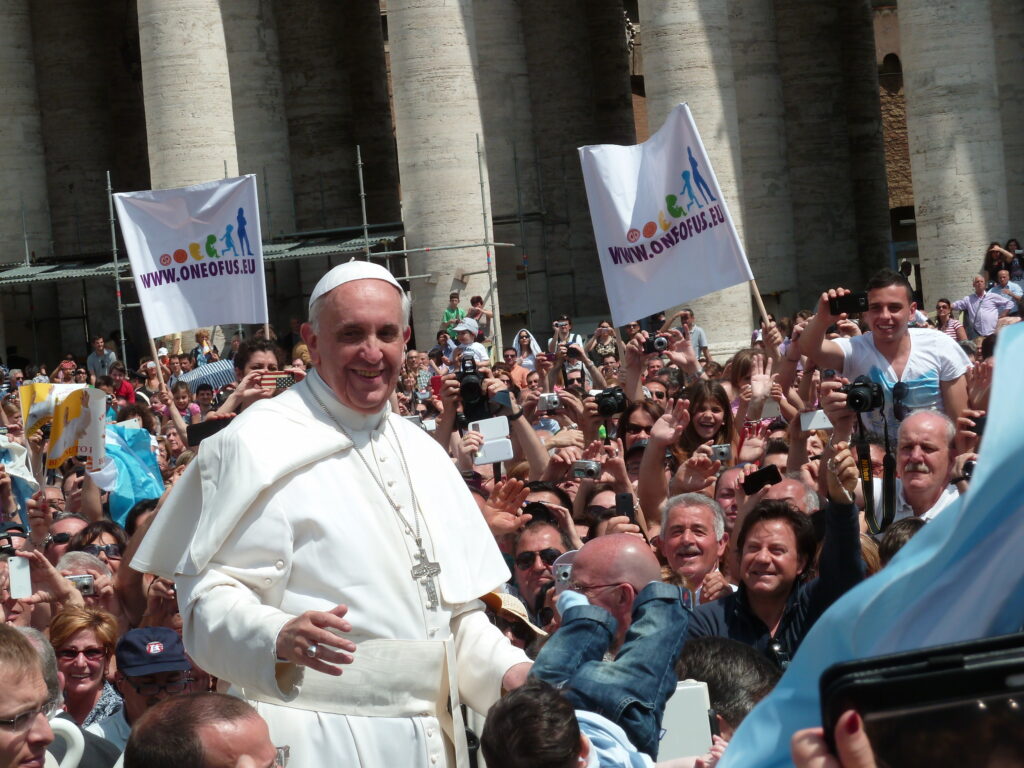Pope Francis has decided to make fighting global warming an important papal cause in 2015. At the close of December 2014, the press was abuzz with news the pope plans to issue an encyclical to the world’s Catholic bishops concerning climate change.
The pontiff praised the UN’s climate treaty efforts in Lima, Peru and seems intent on encouraging the world’s 1.2 billion Catholics to take up the battle against climate change. The Pope reportedly plans to address the 2015 Paris UN climate conference to pressure world leaders to adopt a strong climate agreement.
The Vatican Pontifical Academy of Sciences may be behind the pope’s rising interest in global warming as a moral and political cause. In a December 27 statement, Chancellor Bishop Marcelo Sorondo said, “Our academics supported the Pope’s initiative to influence next year’s crucial decisions. The idea is to convene a meeting with leaders of the main religions to make all people aware of the state of our climate and the tragedy of social exclusion.”
Church and Climate
The pope’s actions follow recent Church efforts concerning global warming. In 2001 the U.S. Conference of Catholic Bishops issued a public statement calling for thoughtful dialogue and prudent action on climate change, and in 2011 Pope Benedict XVI supported international climate action taking into account the needs of the world’s poor.
Depending on the focus of his encyclical, Francis could take Catholic leadership on the issue to a higher level, as encyclicals concern only the most significant issues. They are one of the three most important documents issued by the pope, the others being a Papal Bull and an Apostolic Constitution.
Father Robert Sirico, president of the Acton Institute for the Study of Religion and Liberty, says he doesn’t believe the pope will break bold new ground concerning global warming. Rather, he believes the Pope will focus on the moral teachings of the church regarding the proper role of humans in the environment.
“I fully expect Francis to focus on the moral and theological questions surrounding humanity’s relationship to the environment,” he said. “There may also be some prudential recommendations which some will no doubt take issue with, and even Catholics are free to do so on such prudential vs. theological matters.”
He added, “The encyclical’s most important role is to offer the theological and moral teaching, not scientific analysis, and that’s where I expect there will be continuity with previous papal teaching on this subject.”
Cautionary Words
E. Calvin Beisner, founder of the Cornwall Alliance for the Stewardship of Creation, expressed concern misinformation about climate science is leading the pope to misplace priorities. “There’s no doubt in my mind that Pope Francis means well. Unfortunately, he’s badly misinformed on the climate science and energy economics,” Beisner said. “He and his advisors need to learn the empirical evidence, which falsifies the models behind fears of dangerous warming, and the energy economics, which show ‘Green’ fuels will be unaffordable for the world’s poor for generations to come, leaving them trapped in poverty and the high rates of disease and premature death it brings,” he added.
“Fighting global warming makes little sense for the rich. It’s fatal for the poor.”





